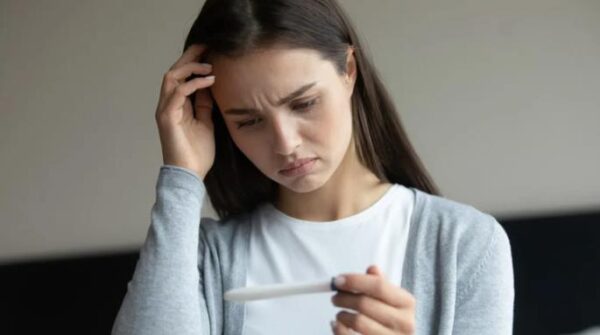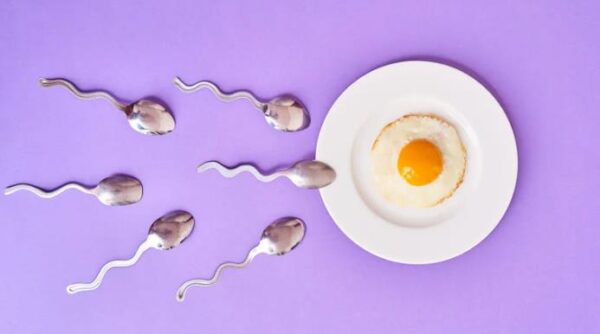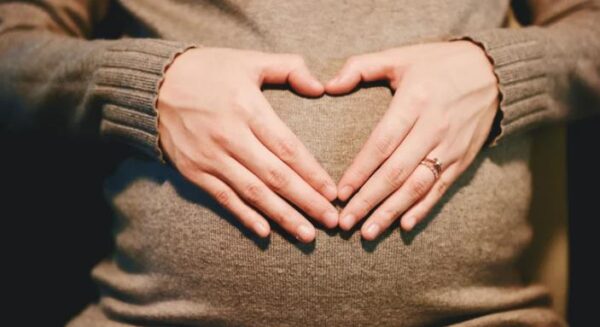Are you trying to conceive or simply curious about your fertility window? One common question many women have is: How many days after your period can you get pregnant? Understanding your menstrual cycle and ovulation is key to maximizing your chances of conception. In this blog, we’ll delve into the intricacies of fertility and provide insights on when you’re most likely to conceive. Let’s unlock the mysteries of reproduction together!
Understanding Fertility and Menstrual Cycle
Fertility is the ability to conceive or become pregnant. It is a natural process that allows women to bear children and continue the human race. However, fertility is not always a straightforward concept and can be affected by various factors such as age, health, and lifestyle choices.

The menstrual cycle is crucial to fertility as it prepares the body for monthly pregnancy. The average menstrual cycle lasts between 28 and 32 days, but it can vary from woman to woman. Understanding the menstrual cycle is key to fertility and knowing when you will most likely get pregnant.
Phases of the Menstrual Cycle
The menstrual cycle consists of four phases: menstruation, follicular phase, ovulation, and luteal phase. The hypothalamus, pituitary gland, and ovaries produce different hormones to control each phase.
- Menstruation
This first phase marks the beginning of your period when the lining of your uterus sheds if fertilization did not occur in the previous cycle. On average, menstruation lasts for 3-7 days.
- Follicular Phase
During this phase, follicle-stimulating hormone (FSH) stimulates several eggs in one of your ovaries to mature inside fluid-filled sacs called follicles. As these follicles grow, they produce estrogen that thickens the uterine lining.
- Ovulation
This is when one mature egg is released from its follicle into your fallopian tube towards your uterus. Ovulation usually occurs around day 14 of a 28-day cycle but can vary for each woman based on her individual hormonal balance.
- Luteal Phase
After ovulation occurs, progesterone levels increase to prepare the uterus for the potential implantation of an embryo if fertilization occurs during intercourse. If fertilization does not occur, hormone levels drop, and the uterine lining is shed again, leading to the start of a new menstrual cycle.
Fertility Window

The fertility window is when you are most likely to get pregnant. It typically lasts six days in each cycle, with ovulation occurring on day 14, considered the most fertile day. However, it’s essential to note that sperm can survive inside a woman’s body for up to five days, and an egg can live for 24 hours after ovulation. This means that pregnancy can occur from intercourse that takes place up to five days before ovulation.
How Many Days After Your Period Can You Get Pregnant?
Many women are curious about their fertility and how it relates to their menstrual cycle. One common question that arises is, “How many days after my period can I get pregnant?” The answer to this question depends on various factors, including the length of your menstrual cycle and when you ovulate.
To understand when you can get pregnant after your period, it’s important to have a basic understanding of the menstrual cycle. On average, a woman’s menstrual cycle lasts 28 days. However, cycles can vary from 21 to 35 days and still be considered normal. Day one of the menstrual cycle is the first day of your period. During this time, the lining of the uterus sheds and is expelled through vaginal bleeding.
After menstruation ends, hormone levels begin to rise in preparation for ovulation. Ovulation occurs when an egg is released from one of your ovaries and travels down the fallopian tube towards the uterus. This process usually happens around day 14 for women with a 28-day cycle, but it can vary depending on your body.
Sperm can live inside a woman’s body for up to five days after intercourse. This means that if you have sex during or just before ovulation occurs, there is a chance that sperm may fertilize an egg and result in pregnancy. However, if you have sex too early or too late in your cycle, there may not be any viable sperm present when ovulation occurs.
So, how many days after your period can you get pregnant? It’s difficult to give an exact number since every woman’s body is different and ovulation timing can vary greatly. However, as a general rule of thumb, most women are fertile for about six days out of their entire cycle – five days leading up to ovulation and the day of ovulation itself.
If you have a shorter menstrual cycle (21-24 days), you may be fertile just a few days after your period ends. On the other hand, if you have a longer cycle (35 days), you may not ovulate until two weeks after your period ends.
It’s important to remember that even with regular cycles and tracking ovulation, there is still a chance of getting pregnant outside the predicted timeframe. Factors such as stress, illness, or changes in routine can affect ovulation timing and increase the likelihood of pregnancy.
Can you get pregnant right after your period?

This is a common question among women who are trying to conceive or those who want to avoid getting pregnant. The answer is not a simple yes or no, as many factors can affect fertility and the likelihood of pregnancy.
Firstly, let’s understand the menstrual cycle and how it relates to fertility. A menstrual cycle lasts 28 days, but it can range from 21 to 35 days for most women. Day 1 of the cycle is considered the first day of your period, and it generally lasts for about 3 to 7 days. After your period ends, your body begins preparing for ovulation.
Ovulation is when an egg is released from one of the ovaries and travels down the fallopian tube towards the uterus. This typically occurs around day 14 of a 28-day cycle but can vary based on individual hormonal levels and other factors. Ovulation only lasts for about 24 hours, during which time fertilization can occur if sperm is present in the reproductive tract.
Sperm can survive in the female body for up to five days. This means that if you have sex on day 10 or earlier in your cycle (before ovulation), there is still a chance that sperm may be present when you ovulate on day 14 – increasing your chances of getting pregnant.
Now, back to our initial question – can you get pregnant right after your period? While it may seem unlikely since ovulation has not occurred yet, some women have shorter cycles or irregular periods which could make them more fertile during this time. Additionally, some women experience spotting during their fertile window (around ovulation) which could be mistaken as an early period.
However, if you do have a typical 28-day cycle and ovulate on day 14, having unprotected sex immediately after your period technically puts you at lower risk for pregnancy. This is because sperm must survive in the reproductive tract for several days before ovulation.
It’s essential to remember that there are always exceptions, and every woman’s body is different. Factors such as stress, illness, or weight changes can affect your menstrual cycle and disrupt ovulation, making it harder to predict when you will be most fertile.
Common FAQs about Pregnancy and Ovulation Timing
How do I know when I am ovulating?
The most reliable way to determine when you are ovulating is by tracking your menstrual cycle. On average, women have a 28-day cycle, with ovulation occurring on day 14, counting from the first day of their period. However, every woman’s cycle differs, ranging from 21 to 35 days. Some signs of ovulation include changes in cervical mucus, a slight increase in basal body temperature, and abdominal discomfort or cramping.
Can I get pregnant right after my period?
It is possible but unlikely to get pregnant immediately after your period ends as sperm can survive for up to five days in the female reproductive tract. However, if you have a shorter menstrual cycle (e.g., 21 days), there is a higher chance of getting pregnant closer to the end of your period.
When is the best time to try for a baby during my cycle?
The best time to try for a baby is during your fertile window, which typically spans six- five days before ovulation and the day of ovulation. This window allows enough time for sperm to meet an egg once it has been released by the ovaries.
Can having sex multiple times increase my chances of getting pregnant?
While having sex multiple times during your fertile window does not guarantee pregnancy, it does increase your chances as it gives more opportunities for sperm to fertilize an egg.
Does using birth control affect my fertility in any way?
Using birth control methods such as oral contraceptives or an intrauterine device (IUD) does not have any long-term effects on fertility. However, it may take a few months for your body to readjust after stopping these methods.
How soon can I take a pregnancy test?
Pregnancy tests can detect the hormone human chorionic gonadotropin (HCG), which is produced during pregnancy, as early as 10-14 days after conception. However, waiting until the first day of your missed period is recommended for more accurate results.
Can stress affect my ovulation and chances of getting pregnant?
Stress can disrupt hormone levels and potentially affect ovulation. It is essential to find ways to manage stress, such as practicing relaxation techniques or seeking support from loved ones, especially when trying to conceive.
